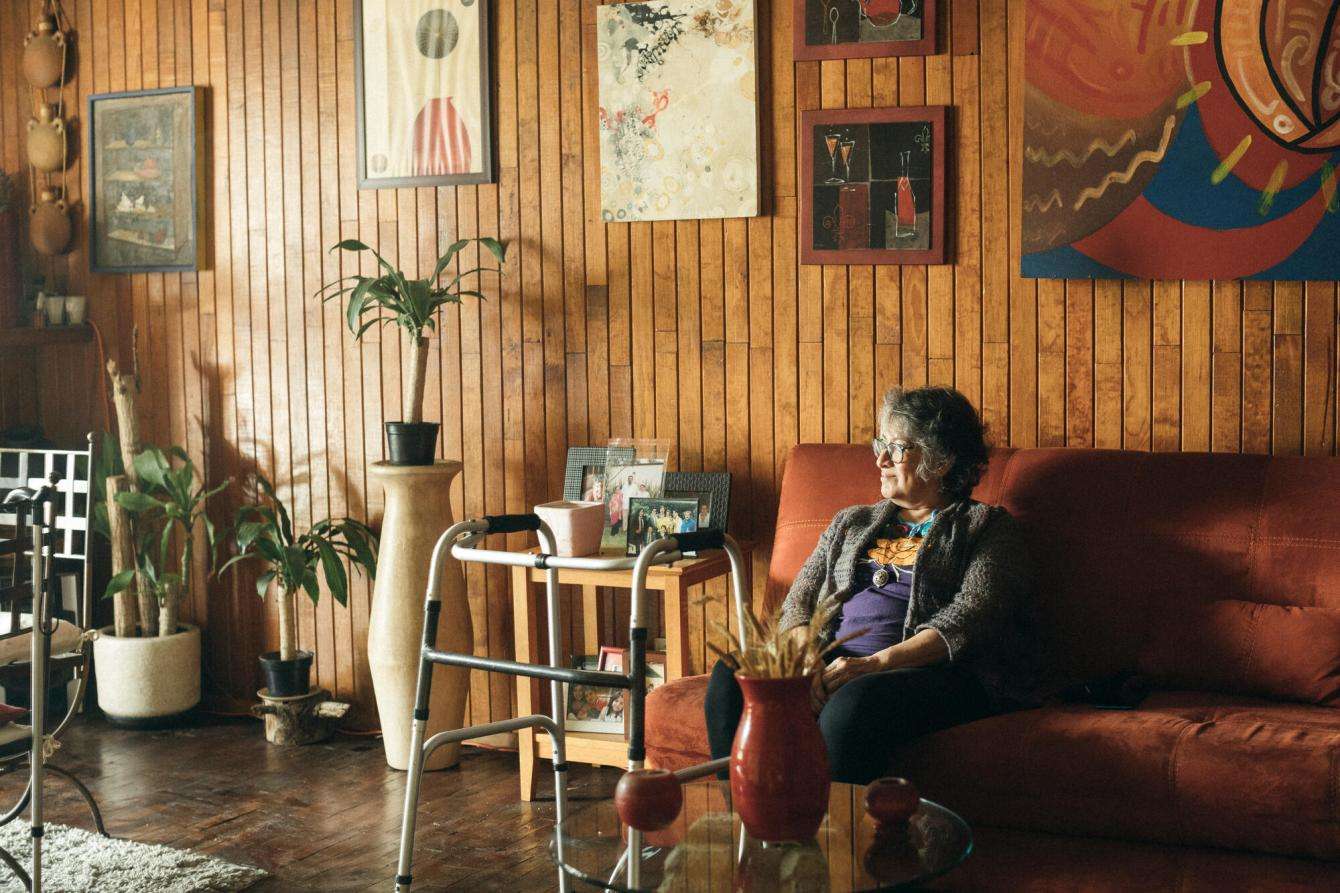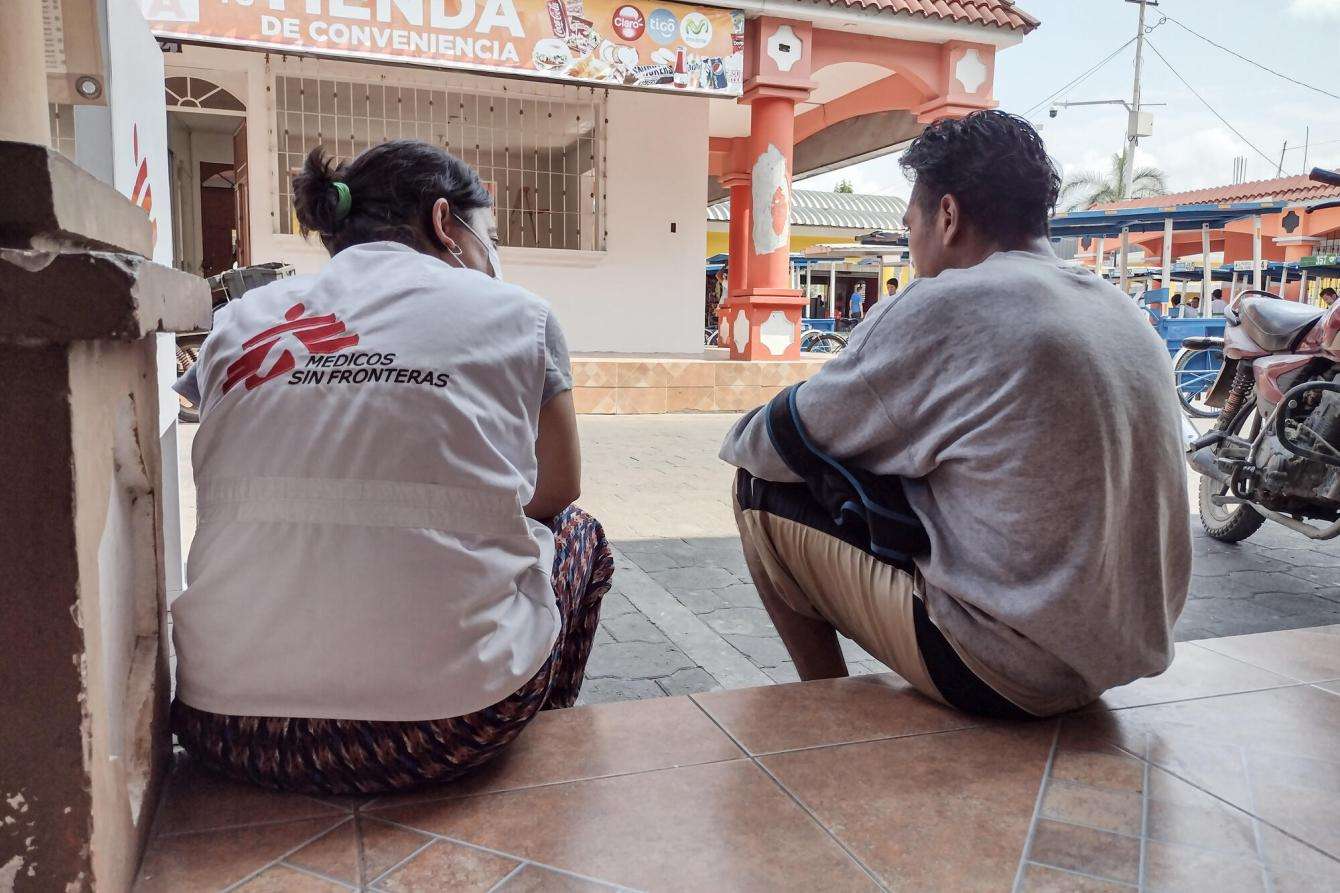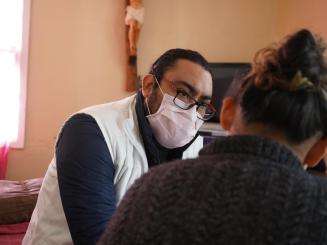Every day, around 30,000 migrants gather in Tapachula, a city on Mexico’s southern border. They wait in squares and parks, in exchange offices or at the Mexican Commission for Refugee Assistance to obtain transit permits and continue their journey.
However, many migrants have experienced physical and mental trauma on their journey—in some cases extreme violence and torture. They are in urgent need of expert medical care. Miguel Gil, a psychologist with Doctors Without Borders/Médecins Sans Frontières (MSF), who has 10 years of experience working with migrants, describes the situation in this city and the challenges our teams face.
Our team here is made up of six psychologists, two doctors, two social workers, a psychosocial community involvement agent, a mental health supervisor, and a team leader. Initially, we visited migrant shelters and other places to identify victims of extreme violence and torture who could benefit from treatment provided at an MSF center in Mexico City. However, for the past year, we have also expanded our medical activities for migrants—providing wider mental health care, as well as support for victims of sexual violence. In 2022, we assisted 187 people.
Tapachula does not have sufficient capacity to assist all the people who come here. There are no basic services. Shelters run by other organizations can’t care for so many people and there is a lack of access to health care in general. MSF is the only organization that offers specialized health care for migrants who have been victims of violence or torture.
In the city, there are specific areas where people stay based on their nationalities. There are migrants everywhere, and they mainly live on the streets. The majority of people are Haitians and Hondurans, while the number of people from Venezuela has recently grown significantly. They tend to advance faster through small caravans to avoid arrest and deportation.

Enduring extreme violence
People who suffer from extreme violence have very critical symptoms. The main ones we see are post-traumatic stress, acute depression, and anxiety. Some of our patients don’t want to continue living.
We have patients who have been victims of rape and others who have been injured by firearms. Some have been mutilated while others have witnessed the murder of family members. I can safely say that I have never cared for so many people with suicidal ideation as I have here. They make up just over 7 percent of our patients.
In addition, there are other factors that aggravate these symptoms, such as the lack of access to humanitarian assistance, which also affects people emotionally. Changes in immigration policies also have an impact on mental health, as well as uncertainty and rejection.
There are women who need prenatal monitoring but who don't have access. Hospitals do not take responsibility for surgery materials either. We have documented cases of obstetric violence. Many patients have told us that they were denied care or were not treated with respect.
When it comes to patients who have experienced torture, the most complex cases are sent to the Comprehensive Care Center in Mexico City. There, our team made up of medical, mental health, physiotherapy, and social workers provide specialized multidisciplinary care to migrants, refugees, and Mexicans who have been victims of extreme violence and torture.

The critical need for support
I feel like I’m doing my bit: making effective referrals, achieving access for patients, and caring for their health. These are the most satisfying things for me—serving people who have been forgotten about.
I think that of the 30,000 migrants from Tapachula, 5 percent of them have suffered extreme violence. In my opinion, what these people need from us, as human beings, is empathy. The last patient I saw with suicidal ideation said to me, “I'm telling you because I see you as a father.” That really touched me.
We have to educate the local people here and help them to understand the stories of those who have suffered so much. Many of the parents, grandparents, or great-grandparents of Tapachula were once migrants, too, so perhaps they can understand the struggle.
Unfortunately, crises continue, forcing people to leave their homes and seek shelter. The violence and cruelty they experience in their own countries and on the road continues.
Over the years, since we've been carrying out the migrant care project in Mexico, the situation has not improved; it has only deteriorated. The cases of extreme violence and torture that we handle are just the tip of the iceberg.
April 03 10:26 AM
Alert Spring 2023: Healing mind and body
How MSF provides mental health care to people caught in crisis.
Read More
How you can help
Not everyone can treat patients in the field. But everyone can do something.
Some humanitarian crises make the headlines—others don’t. Unrestricted support from our donors allows us to mobilize quickly and efficiently to provide lifesaving medical care to the people who need it most, whether those needs are in the spotlight or not. And your donation is 100 percent tax-deductible.




